- ERP Definition
- Brief History and Evolution
- ERP Features
- ERP Types and Vendors
- Why we need ERP?
- Why to use ERP?
- ERP Implementation Tips
- ERP Trends
- Additional questions and answers about ERP
- Conclusion
Every great business starts with its head. The head who is responsible for all the processes inside and aware of situation in general. But it is not so easy to control everything. That is why it is important to have a reliable support, which will help company’s head to organize work efficiently. Today we are going to talk about such support and the name of it is ERP.
ERP Definition
Our first step: to understand what is ERP system and how it works. There are different simple and complex ERP system descriptions on the internet. We would like to present our own definition. Enterprise Resource Planning (or simply ERP) is a system, which helps to store all company’s data and to organize work of different departments.
ERP software consists of several modules. These modules are usually created for company’s needs and targets specifically. Each ERP module corresponds particular department or area requirements. The basic Enterprise Resource Planning modules and their components often are:
| Finance | Sales | HR | Customer Relationship Management (CRM) | Supply Chain Management (SCM) |
|
|
|
|
|
This is how ERP works in an organization: the software stores the whole company’s data and divide it for particular areas, which are in common access. Thus, the ERP software stores the whole company’s data and divide it for particular areas, which are in common access. Trough reports company’s leaders always have the full view of what is going on. They are also aware of how resources spent. It helps company to manage the working processes in a proper way at all levels.
But how and when was ERP created? Let’s see in the next paragraph.
Brief History and Evolution
We can compare ERP evolution with the tree growth:
First come the roots
↓
Then the trunk appears
↓
After that, we can see branches and leaves
The same happened with the ERP development – according to its growth, we can divide the evolution history in three main periods:
Roots: 1910-1960s
Yes, everything is correct – we can find the first prerequisites for ERP appearance in the 1910s. The first step of ERP creation was made in 1913 when engineer Ford Harris invented EOQ. Economic order quantity (EOQ) was a paper system for manufacturing production scheduling. It was the first ERP system ancestor.
The next step was made by Stanley Black and Decker. The company was the first to adopt MRP (material requirements planning) – combination of EOQ and computer.
Truck - the first ERP invention: 1970-1990s
After MRP development, more and more companies started its implementation. And in 1983 MRP II appeared. Its innovative feature was an addition of separate modules and components for different manufacturing tasks.
But the real breakthrough happened in the 1990s when the first ERP was born. The Gartner Group extended MRP capabilities. The company added to ERP features and functions for accounting, HR, financing, customer relations and other so to say back office.
Branches: 21st century
Since the first Enterprise Resource Planning invention, all size businesses began its adaptation and ERP capabilities grew significantly. With the wide increase of internet popularity ERP systems became internet enabled software. It became even easier to maintain control over the whole company processes. Modern ERP are usually cloud-based. In other words, they use SaaS (software as a service) model that permits keeping information on remote server.
As we've already mentioned, ERP evolution is similar to the tree growth, which is unstoppable. There are modern Enterprise Resource Planning trends that will continue to develop more in the future adding new or extending existed features of ERP system. We will talk about it in more detail a bit later. Before, we would like to take a closer look at one more thing that requires attention. Let’s overview present ERP opportunities and features.
ERP Features
After defining ERP system meaning and evolution, it’s high time to talk about modern ERP systems. To be precise, let’s overview its significance, which lays in the main features. Here is the list of the most important ERP functions:
- Integrated system: being a single source, the system helps to integrate all ERP elements together. ERP areas work in harmony as they react on changes and update the data of each department efficiently.
- Common database: every department has access to the whole company’s data.
- Reporting and analysis: data analyzing and reports provide opportunity to identify pain points and correct them effectively. Data analysis is also aimed at productivity and decisions outcome forecasting.
- Some tasks’ automation: helps to save time and reduce errors, as some tasks like invoicing, reporting, payroll, accounting and others are made automatically.
These features of ERP are usually common for all kind of systems. But what kinds of it do exist? The answer is below.
ERP Types and Vendors
So what types of ERP systems exist? There are several criteria to classify them, but in general, it depends on the organization needs, size and orientation. We distinguish three main types:
1. Industry-specific
Initially it was the only type of ERP system as it was specifically created for big companies’ needs. So this type is still used in large corporations. The main industry-specific ERP system purpose is to organize work of numerous organization’s departments efficiently. They are usually developed from the ground or customized according to particular corporation requirements.
Vendors: SAP, Oracle.
2. Small business
Small business don’t have such complex structure as large ones. Although some of them still need solution for management of small departments like orders, HR, sales. In this case small business ERP systems suits perfectly. They are scaled-down versions or industry ERP and customized for small companies according to required modules.
Vendors: PeopleSoft, Netsuit.
3. Web-based and SaaS
This ERP type suits for both small and large organizations. The particular feature is that they run on remote server instead of being stored in your computer. So you can buy a subscription and have access to ERP system whatever you are with the internet connection.
Vendors: Epicor, Microsoft Dynamics.
There is one more ERP variant not included in this list. Not every company needs a ready solution, sometimes it is better to create it yourself, especially if you have a qualified IT department. Such solution is Xafari by Galaktikasoft. This framework provides opportunity to develop your own ERP system. Xafari ERP components for different purposes are included in Enterprise Subscription.
For more info refer to Xafari page.
Why we need ERP?
Every company is unique and has its personal requirements, goals, vision. And Enterprise Resource Planning is not necessarily the best solution for every organization. But there are some signs that are the clear evidence - it’s time to improve your business with ERP:
- The teams spend a lot of time for tasks that can be automated;
- Your system is disparate: there are a lot of different software and tools without connection to each other;
- There is no constant access to the whole database;
- Organization processes are not integrated and systematized;
- It’s hard to forecast pain points and as a result problems are found late;
- Delays and disruption that cause additional costs.
If your company has these problems, it is high time to look for an appropriate system. Let’s overview which benefits ERP use can offer as a solution.
Why to use ERP?
As we already mentioned ERP definition, features and types, you already know about Enterprise Resource Planning basis. But what advantages can ERP bring to you and why is it relevant? What solution can it offer to solve the problems from the previous part? It’s time to face ERP benefits:
1. Time spending
Solution: ERP provides automation for some tasks. Now there is no need to spend time on repeating actions as the system will execute them fast and correct.
2. Disparate system
Solution: united system. ERP combine all the tools in a single system with a common database and open access to it. Thus, it also promotes department cooperation.
3. No constant access to the whole database
Solution: web-based system gives constant access to the EPR data. If you have an internet connection, you can work with ERP whatever you are.
4. No integration and data systematization
Solution: integrated system. All the elements are united and integrated. The data is divided in a logic way according to the working areas and departments.
5. Problems are solved late
Solution: possibility to forecast the pain points through analysis system. You can figure out the main problems, achievements and forecast future results.
6. Additional costs caused by delays and disruptions
Solution: ERP saves money. As all the processes are established and the system maintain departments’ work it is much easier to avoid troubles. Problems are solved quickly and in a proper way.
As you can see ERP system solves all the major problems. In case you are interested in its implementation we prepared some tips below.
ERP Implementation Tips
Despite ERP the wide spreading some companies still have some concerns about its implementation. Let’s analyze some of them:
Concern: We don’t know how to choose the right ERP solution for our business.
Answer: It is all depends on your particular company form and requirement. There are lots of ERP variants: from solutions for small businesses to huge corporations. They also vary in modules, functions and components quantity. ERP system can be both ready-to use and build from the ground up. So you can choose or build the right one for your business specifically.
Concern: ERP systems are rather expensive.
Answer: Yes, that is try, ERP are now so cheap. But the fact is they are aimed to optimize organization work and to avoid malfunctions. ERP software usually has an effective forecasting system, which helps to prevent delays and unforeseen problems. Thereby, the company doesn’t have additional costs for troubleshooting and saves money.
Concern: We can’t effort constant ERP upgrades.
Answer: As ERP vendors provide opportunity to choose or build the system in accordance with organization needs and preferences it is also possible to upgrade particular modules. You don’t have to change the whole system, just choose the area you need.
Concern: We are afraid the company could lose the present system or it will work worse.
Answer: ERP solution work together with the system company uses at the moment. Its purpose to optimize it and extend without any damage.
So if you really understand the company's need for Enterprise Resource Planning system here are some steps before implementation:
Step one:
Understand the main requirements. Consider the points you want to optimize. Make a list of pain points, problem areas and questions.
Step two
Think about the benefits ERP system will bring you. Make a list and discuss it with our team. Focus on pain points and ERP solutions for them.
Step three
Organize the team responsible for ERP implementation. Discuss and measure resources you will need at every implementation step. Estimate the time.
Step four
Choose an appropriate ERP vendor and ERP system which will suit our preferences and requirements.
Step five
Think about amount of data migration in ERP system in advance. Make sure every team member is aware of his role in the implementation process and understand the changes it will bring.
Step six
Do not hesitate to turn to support and assistance from vendor during implementation. Provide your team with such possibility too.
Even understanding that the ERP implementation process requires time and efforts, it’s really worth it. Just do your best to make all the necessary preparations and follow the steps above.
ERP Trends
As you may remember, we have already mentioned Enterprise Resource Planning past and present in the ERP brief history and evolution paragraph. And as we promised, let’s return to ERP trends and talk about its future.
Here are some current ERP trends that will be developed in the future:
- Cloud-based ERP
Cloud computing makes transition to ERP systems easier. Cloud software doesn’t require some special trainings for IT department. There is also no need in updates and maintenance as they are automated.
- Social ERP
Social ERP is all about customer care. Communication and support are the key points here. Social ERP (sERP) allows sharing customer data and history (if privacy level permits), provides live data access.
- Mobile ERP
We more often use our mobile devices for business purposes. And now even more constant access to ERP system anywhere you are as it is always in your device.
- IoT and ERP
The Internet of Things (IoT) provides network connection for devices and objects in order to exchange data without human intervention. ERP and IoT interaction will make ERP solutions interactive and innovative. The services will gain more detail information about customer’s devices and could fix the problem faster.
Additional questions and answers about ERP
To summarize everything up we’ve prepared a list of top asked questions about ERP systems:
1. How to use ERP system?
Enterprise Resource Planning or simply ERP is a company’s helper and support. It is a system that helps company to manage all business activities. ERP includes different modules for various business areas such as marketing, finance, logistic, HR, etc. Its main purpose is to simplify organization’s work by performing the following tasks:
- Reports and analysis issuing
- Forecasting
- Tedious tasks reduce
- Planning
- Data systematization
2. How does Enterprise Resource Planning work?
ERP performs two basic things:
- Stores all the company data
- Presents it in suitable systematized form
ERP consists of different modules corresponding business areas and departments. There are some basic modules and their functions:
- Finance: budgeting, bank reconciliation, general ledger;
- Sales: order creation and processing, online sales;
- HR: employee data< personnel management and development;
- Service: warranties, contracts, post-sales tracking.
3. How or where can I learn about ERP?
First of all, you should choose a suitable ERP software you want to work with. There are several ERP vendors which provide free documentation and tutorials:
- Odoo
- webERP
- Opentaps
- XAF and Xafari
- xTuple ERP
4. What are the main features and characteristics of an ERP system?
Among all the ERP features here are the most important ones:
- Data analysis system
- Reporting system
- CRM
- Automation and integration
5. Does Enterprise Resource Planning has a future?
At the moment ERP systems are more and more popular. There are different varieties of them according the company type and requirements. So every business can find its own ERP variant. But they popularity will only grow and these current trends will develop more in the future:
- Social ERP
- IoT and ERP
- Mobile ERP
- Cloud-based ERP
6. Why is ERP important?
As it was already said, the main ERP aim to make company’s processes easier. To be precise, ERP facilitates the following:
- Improves departments cooperation: the data and tasks systematized and it is easier to cooperate inside and outside department;
- Provides overall view of organization’s work: the head of the company can easily gain access to all the company data and reports;
- Constant data access: web-based and cloud-based ERP give opportunity to access the data anywhere you are with the internet connection;
- Better finance management: finance module includes useful components for budget management;
- Better customer support and satisfaction: the system stores all the customer data and helps to get access to it.
7. Does the small business need Enterprise Resource Planning?
Initially ERP systems were created specifically for large business. But now there are options which help in small business operation. ERP software for small organizations contains only those modules and components that correspond company’s needs. So you can choose the right option specifically for your business.
8. How do ERP and Oracle ERP differ?
ERP here is a concept. It is a system for better company’s processes operation. Oracle ERP (like Microsoft Dynamics, Netsuit etc.) is one of the variants of such system, which follows ERP standards.
9. What are the main challenges during ERP implementation?
Enterprise Resource Planning system implementation is not a simple and short process. It requires some preparation and may cause the following difficulties:
- High cost
- Operation problems
- Setting difficulties
- Difficult to choose the appropriate one
- Lack information
But all the above mentioned difficulties can be solved if you implement ERP step by step and prepare in advance. You can find the major implementation steps and tips in the article above.
10. Is there any connection between MRP and ERP?
Material Requirements Planning or MRP is a system focused on material planning required for production of business product. It is so to say ERP predecessor. MRP system still exists and can be a part of ERP planning and manufacturing modules.
Conclusion
We hope this article was useful for you and gave a clear ERP overview. Whether to use ERP system or not is absolutely up to you and your company’s needs. But now you know about all the benefits it gives and problems it solves. And we can’t deny: in some cases it is really helpful to have a clear plan and support to rely on.


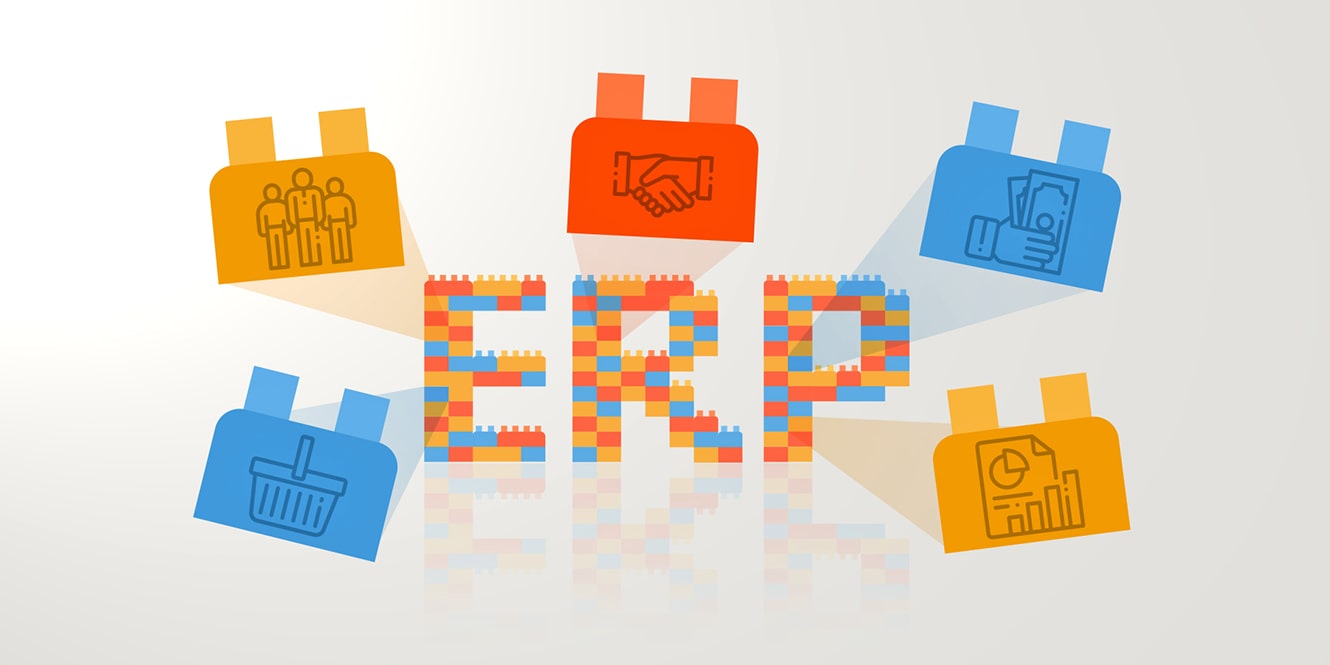
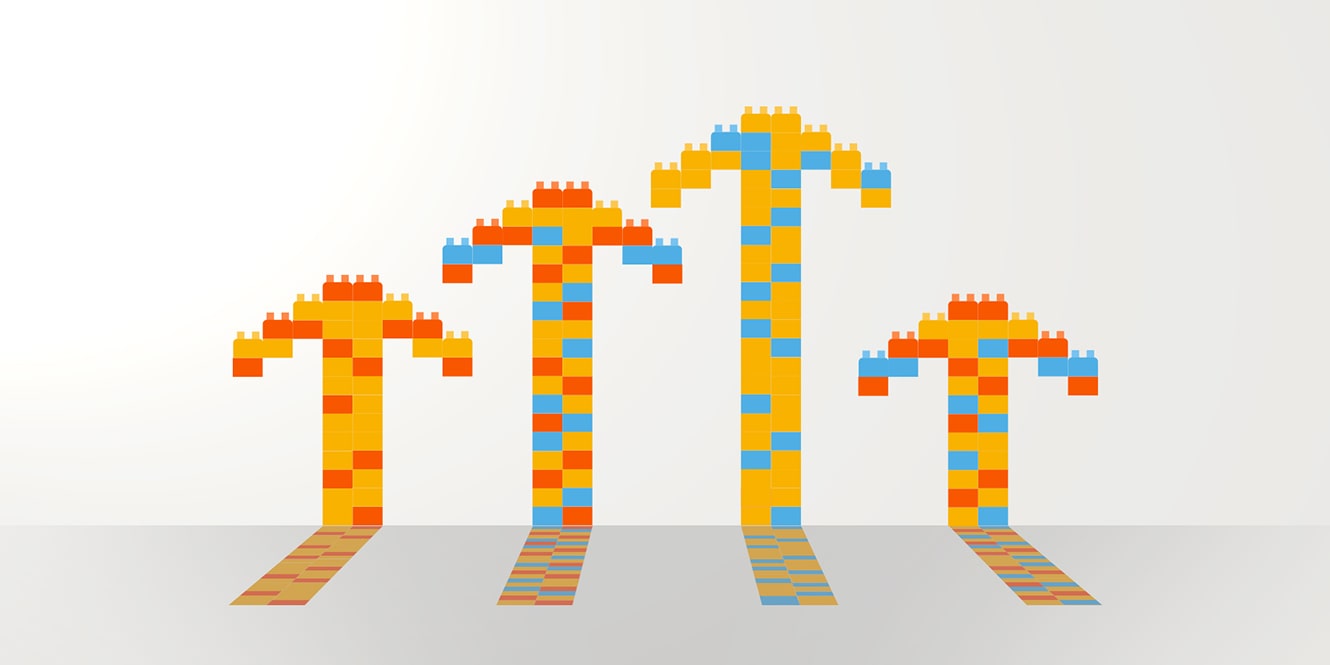



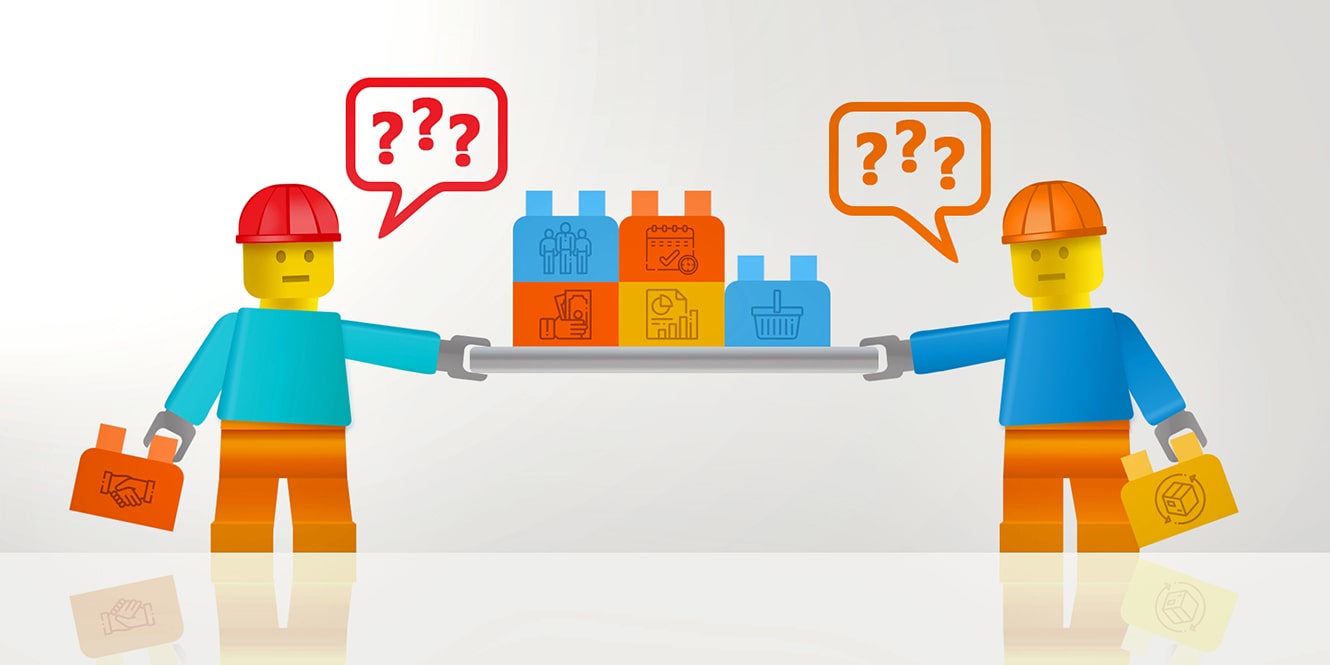
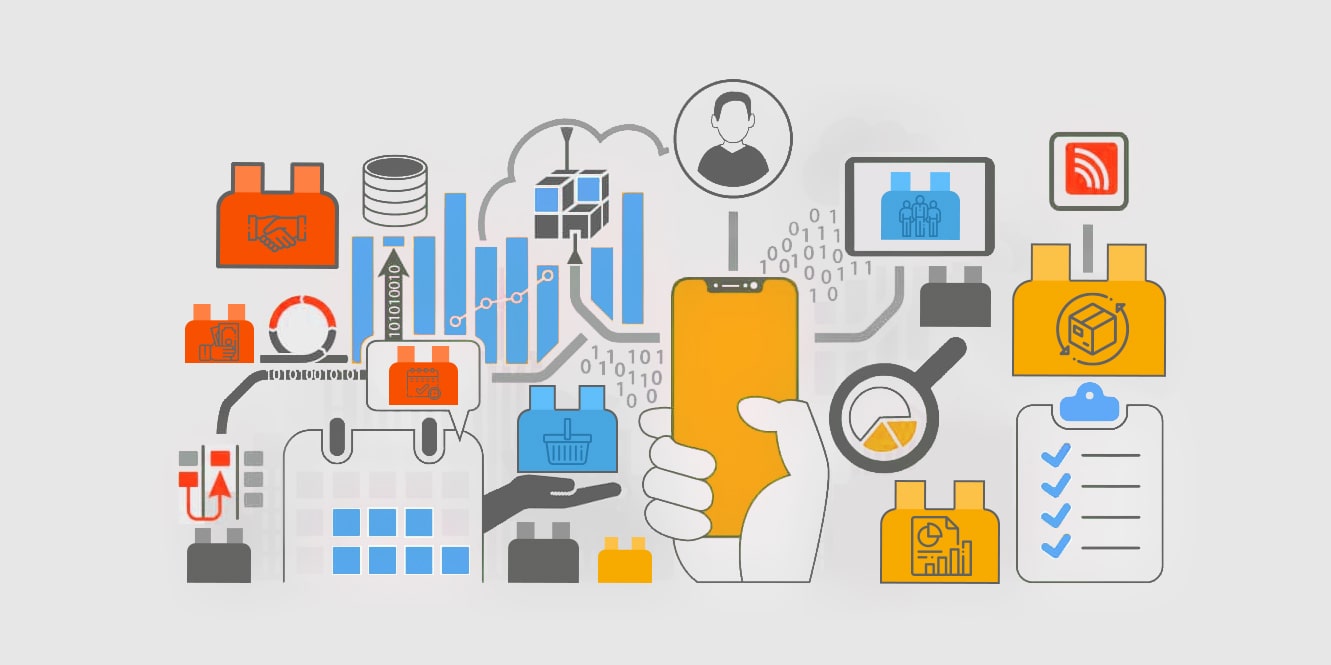
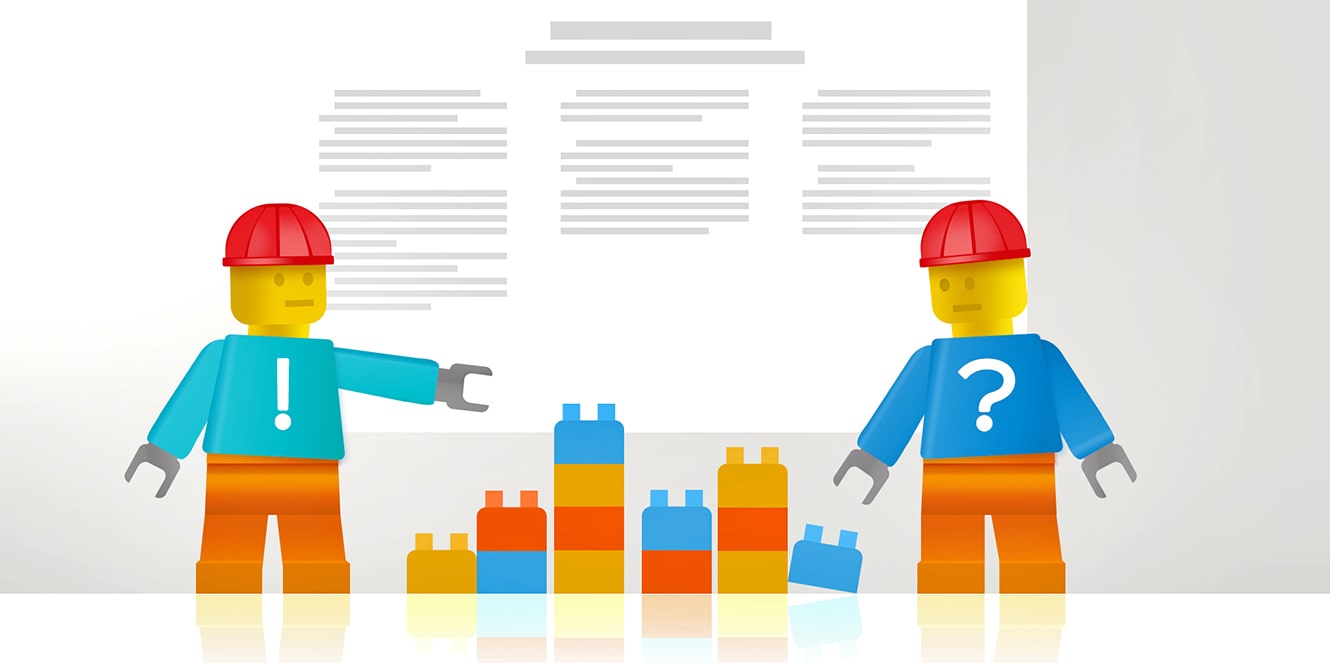

You mentioned xaf xafari erp? Is there such
Thank you for your question! Xafari Framework provides opportunity to generate ERP systems. Our customers already have ready ERP solutions developed on Xafari basis.